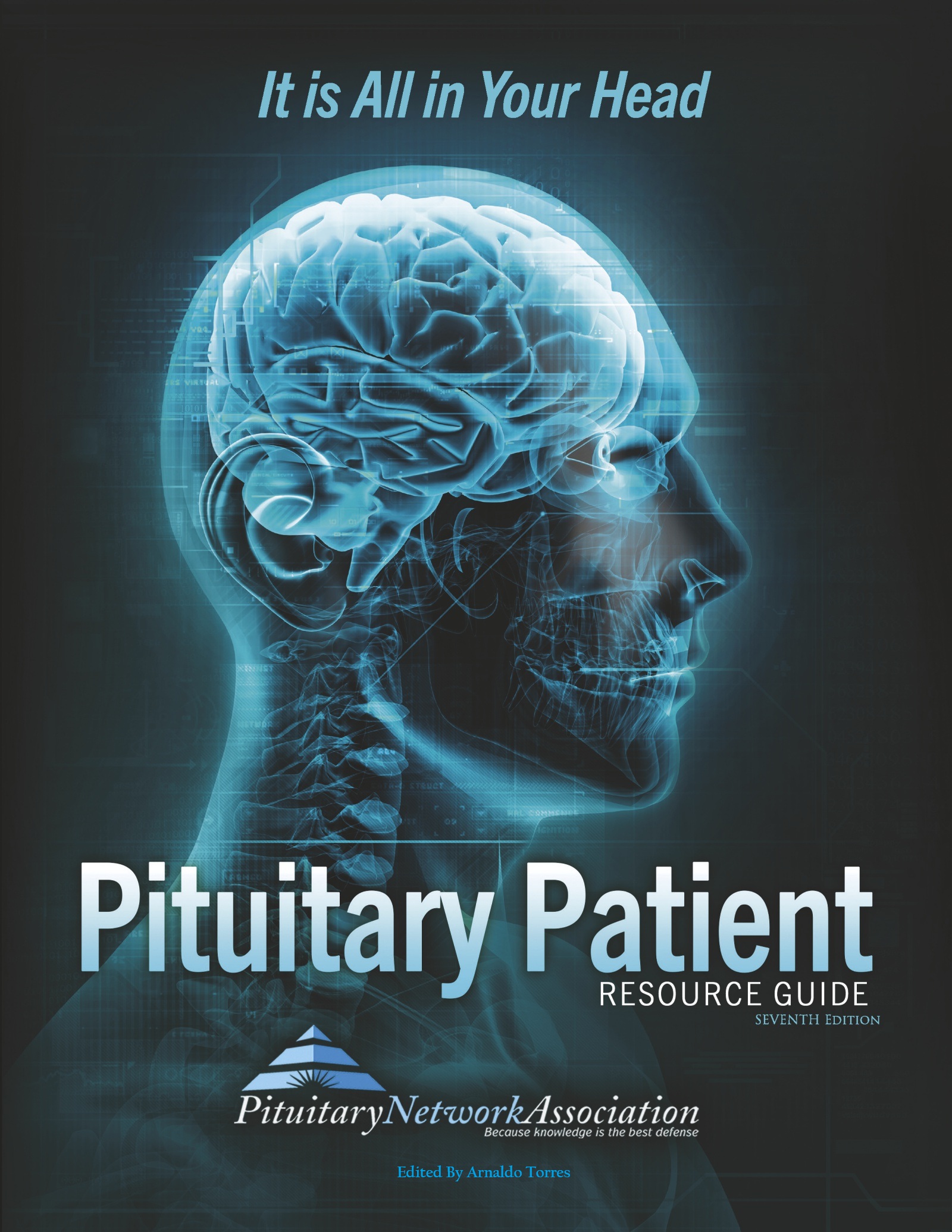Highlights Newsletter
PNA Highlights February 2026
“Your body hears everything your mind says.” – Naomi Judd
PNA Spotlight: Dr. Bernard R. Bendok
This month the PNA Spotlight focuses on Bernard R. Bendok, M.D., the William J. and Charles H. Mayo Professor and Chair of Neurological Surgery at Mayo Clinic in Arizona. He was kind enough to answer a few questions from the PNA. Here are his answers, lightly edited for clarity.
Please tell us about your early life, and why you chose pituitary medicine.
I was born in Detroit, and at age five, we moved to Harper Woods, so I spent my childhood living along Lake St. Clair. From age nine to fifteen I lived in Lebanon because my parents moved us there for family and work reasons. In ninth grade during the biology lecture on pituitary disease, in that moment, I decided to be a doctor. My passion for pituitary disease really stems back to this day. I remember distinctly: I was so amazed that this little gland could be a symphony conductor of the body. I didn’t know anything about being a doctor. We have no physicians in the family. Nobody had talked to me about being a doctor. But I knew, at that moment, that I was going to be a doctor. I didn’t know I was going to be a neurosurgeon, but I knew I was going to be a doctor.
Please tell us about your medical training and your mentors.
I went to medical school and did my residency training at Northwestern. I did my fellowship at SUNY Buffalo. While in medical school I learned from a pioneer in pituitary diseases named Dr. Ivan Ciric. He was a towering figure, an amazing surgeon, and an incredible human being. I had the privilege of writing the review of his autobiography, called “Listen to the patient.” It’s a phenomenal book about health care and the passion and joy of being a doctor, and so I was inspired by him.
Read More Here
PNA Medical Corner: Endoscopic Endonasal Transsphenoidal Surgery
This month the PNA Medical Corner showcases a study co-authored by several PNA-affiliated specialists: Drs. Joao Paulo Almeida, Juan Carlos Fernandez Miranda, and Daniel Prevedello. The study proposes an intraoperative framework to confirm safe phase progression in endonasal transsphenoidal surgery.

Pituitary 2026 Jan 28;29(1):35.
doi: 10.1007/s11102-026-01636-2.
Critical views for safe surgical phase progression in endoscopic endonasal transsphenoidal pituitary adenoma resection: modified Delphi consensus
Tjasa Zaletel # 1 2, Danyal Z Khan # 3 4, Anjana Wijekoon 5 6, Zhehua Mao 5 6, Joao Paulo Almeida 7, Anouk Borg 2, Jonathan Chainey 8, Michael D Cusimano 9, Daniel A Donoho 10 11, Neil Dorward 2, Juan Carlos Fernandez-Miranda 12, Giorgio Fiore 13, Theofanis Giannis 2, Alfonso Lagares Gomez-Abascal 14 15 16, Lauren Harris 2, Abhiney Jain 2 5, Ruth Lau 17, Sacit B Omay 18, Igor Paredes 14 15 16, Daniel Prevedello 19, Gabriel Zada 20,

Danail Stoyanov 5 6, Sophia Bano 5 6, Hani J Marcus 2 5
Affiliations Expand
- PMID: 41604016 PMCID: PMC12852166 DOI: 10.1007/s11102-026-01636-2
Abstract
Purpose: Endonasal transsphenoidal surgery is the gold-standard for pituitary adenoma resection, yet no intraoperative framework exists to confirm safe phase progression. Inspired by the Critical View of Safety in laparoscopic cholecystectomy and engineering “phase-gate” process, we propose the Critical Views for Phase Progression (CVPPs) – a set of visual cues confirming phase objectives and safe phase progression. Designed to be clinically relevant and machine-readable, CVPPs aim to support training and future AI-driven guidance systems.

Methods: A three-round modifi
ed Delphi process was conducted involving 15 pituitary surgery experts from 13 centres across Europe and North America. CVPPs for the naso-sphenoid, sellar, and closure phases were classified as “Essential”, “Desirable” or “Not Necessary”. Consensus required ≥ 70% agreement. A local validation study was subsequently performed involving six experts who reviewed 15 intraoperative video clips and rated their confidence to proceed, which was compared against the predefined reference derived from the finalised CVPPs.
Results: Consensus identified essential and desirable CVPPs across all three phases for both micro- and macroadenoma variants, reflecting differences in exposure goals and surgical risk. Validation demonstrated high concordance between participant ratings and predefined references. Discrepancies arose only in a minority of intentionally incomplete (“unsafe”) views and were attributable to contextual misinterpretation of short video segments, rather than disagreement with the CVPP framework.
Conclusion: This international, multicentre consensus is the first to define CVPPs. By standardising intraoperative visual benchmarks, CVPPs can enhance training, mitigate risks, and provide a foundation for future AI-driven guidance systems capable of real-time anatomical annotation and decision support.
Keywords: CVPP; Consensus; Delphi; Endoscopic endonasal; Endoscopic transsphenoidal surgery; Pituitary adenoma.
Conflict of interest statement
Declarations. Ethical approval: Ethical approval and informed consent were unnecessary due to the nature of the study (consensus process amongst health care professionals). Participation in this study was voluntary. Competing interests: HJM is an employee of and has shares in Panda Surgical. DS is an employee of Digital Surgery, Medtronic and has shares in Panda Surgical, Odin Vision, EnAcuity and Helico Medical. JPA is a consultant for Stryker. MDC serves on the Pfizer Medical Advisory Board.
Count on your Xeris CareConnection™ Team for unparalleled Cushing’s Support
Cushing’s can be challenging, but there is support so patients can feel like themselves again. The main goal of treating Cushing’s is to get cortisol levels back to normal. This Pituitary Awareness Month, Xeris Pharmaceuticals® is highlighting the importance of one-on-one support for patients living with Cushing’s Syndrome and support for HCPs treating Cushing’s Syndrome.
Sign up to get dedicated support:
Patients: Sign up for support | Recorlev® (levoketoconazole)
HCP’s: Connect with Xeris support | RECORLEV® (levoketoconazole)
Have more questions? Call for more support at 1-844-444-RCLV (7258)
Copyright © 2024 Pituitary Network Association All rights reserved.
Disclaimer: PNA does not engage in the practice of medicine. It is not a medical authority, nor does it claim to have medical expertise. In all cases, PNA recommends that you consult your own physician regarding any course of treatment or medication.
Our mailing address is:
Pituitary Network Association
P.O. Box 1958
Thousand Oaks, CA 91358
(805) 499-9973 Phone - (805) 480-0633 Fax
Email [email protected]
You are receiving this Newsletter because you have shown interest in receiving information about our activities.
If you do not want to receive any more emails from PNA, Unsubscribe.






